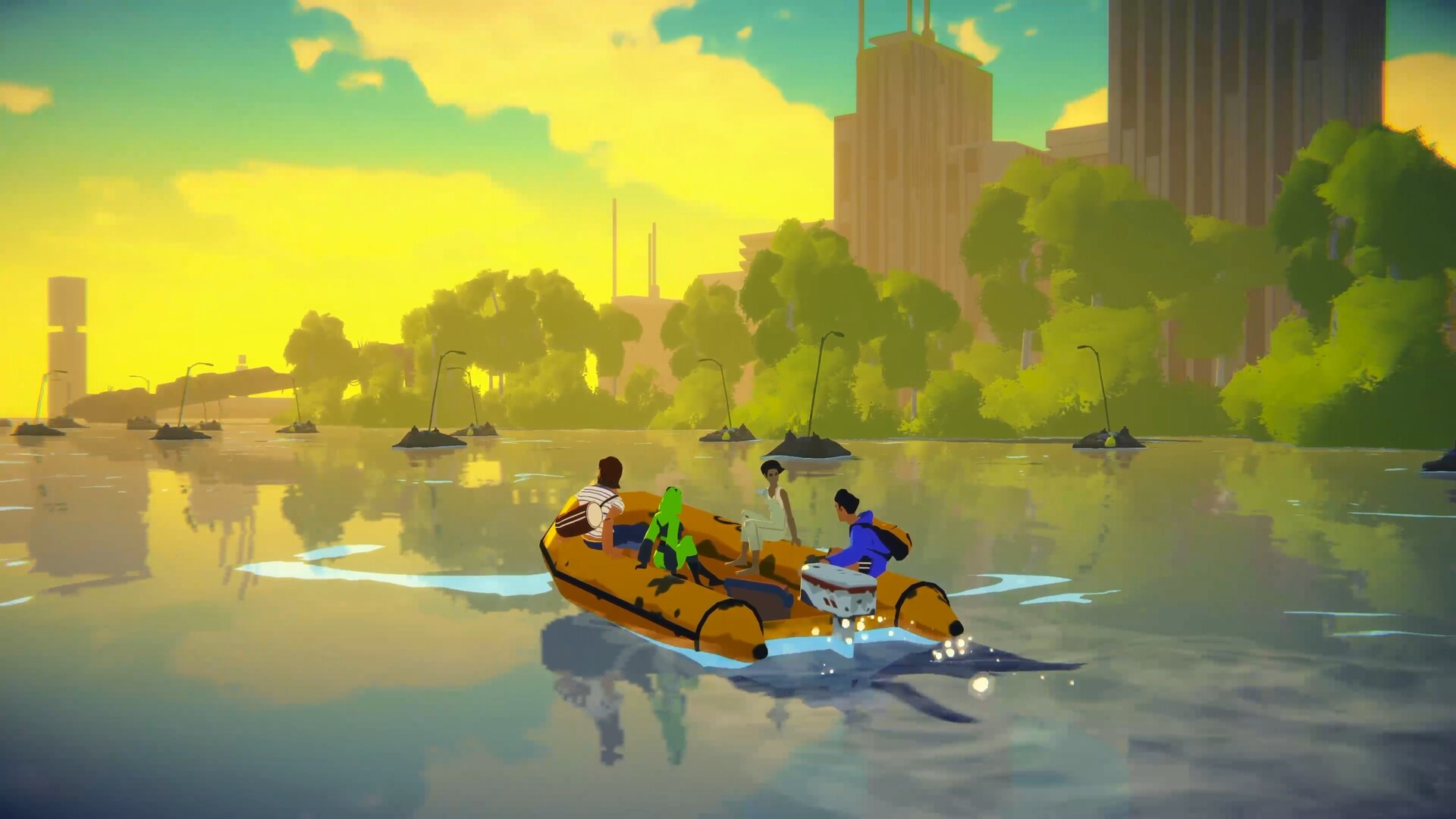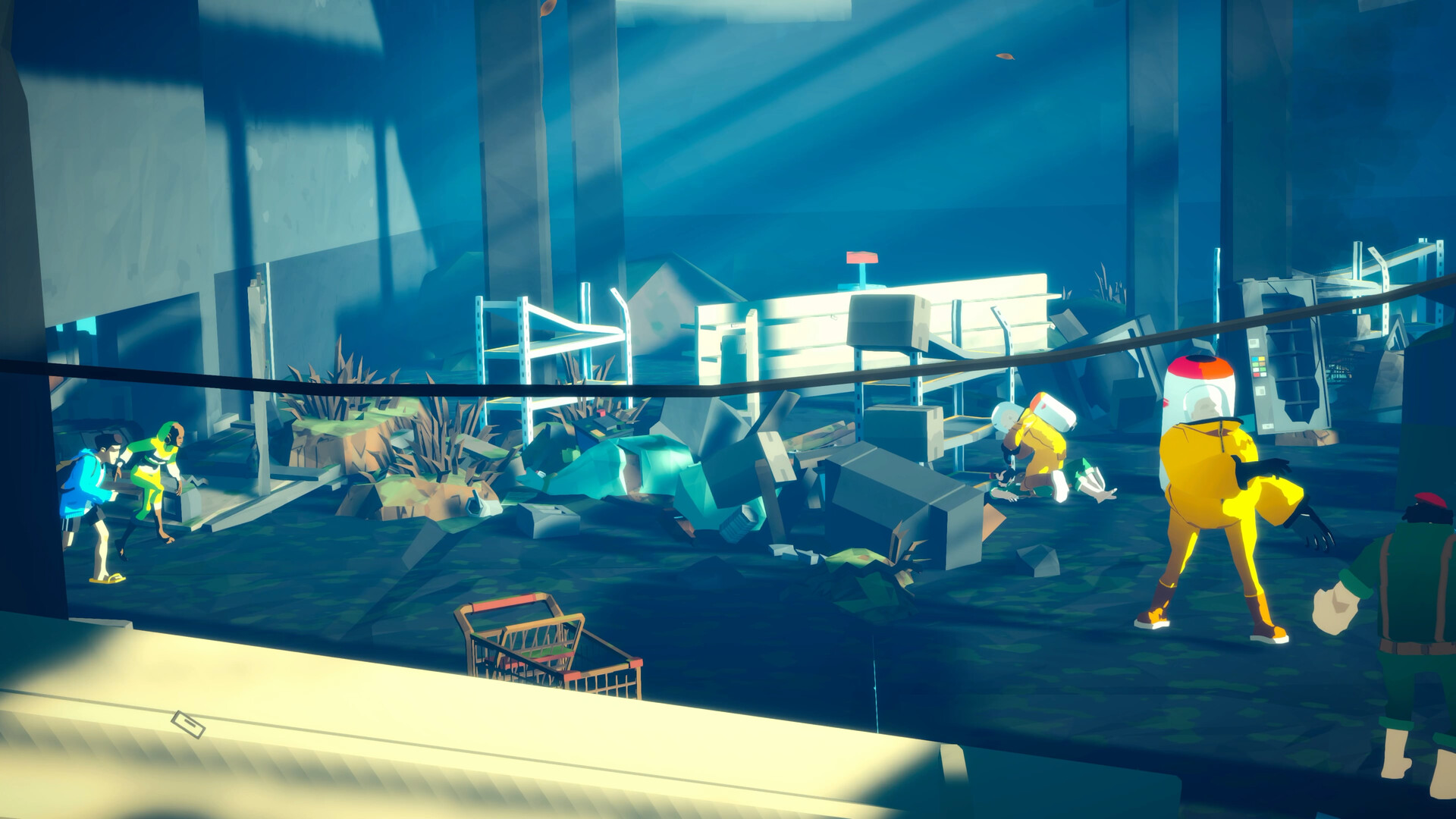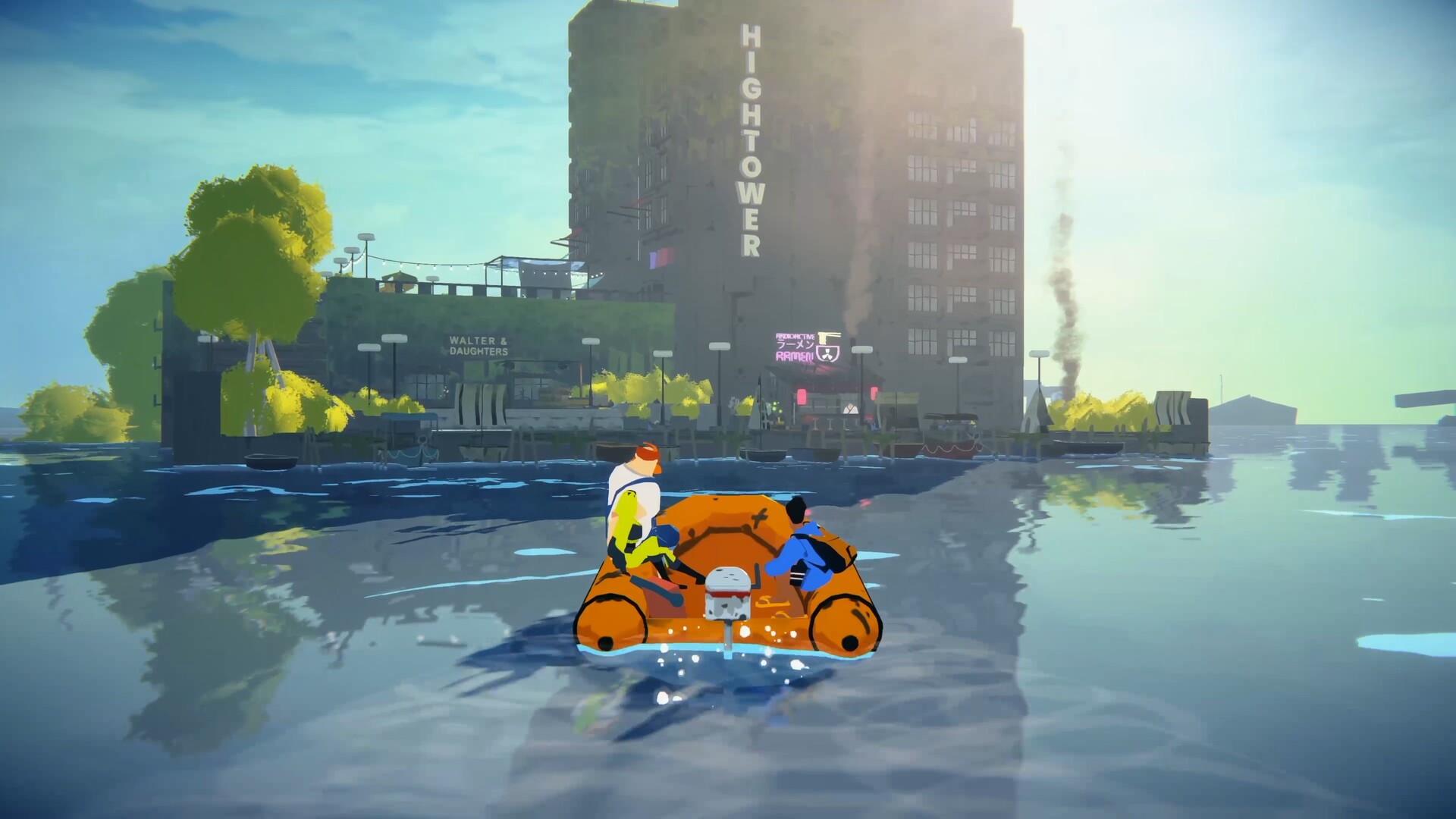Highwater Interview – Art Style, Setting, Exploration, and More
With a blend of turn-based tactics and adventure mechanics, all against the backdrop of a post-apocalyptic setting brought to life by a distinct and vivid art style, Highwater is certainly a game that catches the eye. Having launched for mobile devices roughly a year ago via Netflix, the strategy adventure game is now on the verge of making its debut on PC and consoles, platforms that the game was originally always meant to appear on- and now finally will. Ahead of its release, we recently had the chance to reach out to its developers with questions about Hightower and its development, what to expect from its upcoming re-release, and more. Below, you can read our interview with Demgaog Studio CEO and Highwater’s creative director Igor Simic.
“This is a story of friendship, a road trip, a fictional immigrant tale, a sci-fi dystopia, and a kind of situation comedy.”
Highwater has been available on mobile devices for nearly a year. Was it always the plan to eventually bring the game to more platforms, or was it something that came about following its initial release?
Originally, the game was made for PC primarily. When we were past the demo phase, the Netflix offer happened. We hoped to release Highwater simultaneously on Netflix, PC and consoles, but that didn’t happen for various reasons.
Highwater boasts a very unique and distinctive art style. How did you land on this aesthetic for the game?
The vivid bluish color palette, the fog, and melancholy atmosphere were already introduced in our other games that are set in the aftermath of this fictional ecological catastrophe. The low-poly characters were both an aesthetic and practical solution to the general scope of missions, number of friends in the crew and NPCs in a relatively short development period. Kentucky Route Zero was partly the inspiration behind this look that has a bit of minimalist, moody, theater feel.
Highwater’s dystopian post-apocalyptic setting is one of its most intriguing elements. Can you tell us more about what kind of a story the game tells within that setting and the themes it tackles?
A week before the elites of Alphaville depart for Mars, a group of friends living in a flood zone decide to go on a precarious journey in hopes of sneaking onto the Mars-bound rocket. This is a story of friendship, a road trip, a fictional immigrant tale, a sci-fi dystopia, and a kind of situation comedy. The goal was to make a bittersweet comedy about the apocalypse, to turn the general trope of mainstream apocalyptic entertainment on its head. The setting combines two main influences: Central European modernism (most notably brutalism in Former Yugoslavia) and Silicon Valley singularity-meets-space utopianism exemplified in a mix of Apple HQ architecture, SpaceX, NASA, Buckminster Fuller, and Metropolis. These cityscapes are either steeped in or surrounded by water, which is a cross between the stark images of recent floods globally and Lake Geneva.
“The exploration serves several goals: narrative, finding loot or collectables, and listening to the in-game radio.”
How much emphasis does the game place on exploration? How does the experience on that front differ when players are in their boat as opposed to when they’re on land?
The exploration serves several goals: narrative, finding loot or collectables, and listening to the in-game radio. This part of the game connects the “islands” where combat and key story moments take place and has a predominantly chill vibe. Conversely, situations on land mostly lead to conflict with Alphavillians, Insurgents, or other civilians trying to get by in the flood.
Hightower’s turn-based tactical combat is another one of its eye-catching elements, in particular thanks to how it focuses on environmental interaction. Can you talk more about that, and how it sets apart the game’s combat from other turn-based tactics titles?
Our idea was to start with combat that is a bit like a slapstick puzzle: the player pushes or throws found items, breaks tiles with a falling light pole, pushes shopping carts, stuns enemies with a flashlight. We hope this is a fresh take on the turn-based genre. Gradually, as we get closer to Alphaville, enemies grow in number and the combats become more serious, including range weapons, hacking, potions, etc.
With Highwater making the jump from mobile devices to PC and consoles, what sort of changes or enhancements should players expect from the game, whether in terms of visuals, controls, or the content?
Since the game was always envisioned primarily for PC and consoles, it will actually look and perform as it’s supposed to. A lot of elements were polished and two large DLCs will be available at launch.
“Since the game was always envisioned primarily for PC and consoles, it will actually look and perform as it’s supposed to. A lot of elements were polished and two large DLCs will be available at launch.”
Roughly how long is an average playthrough of Highwater?
The main story probably takes an experienced player around six hours, and the two additional DLCs add up to a total of eight hours.





Comments are closed.